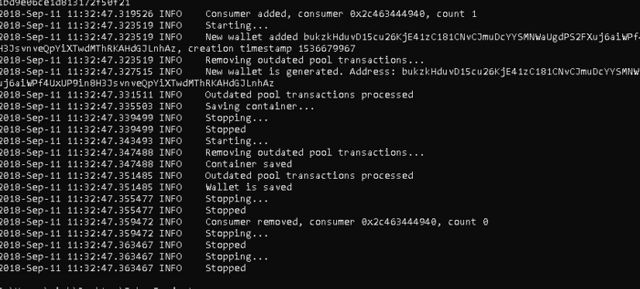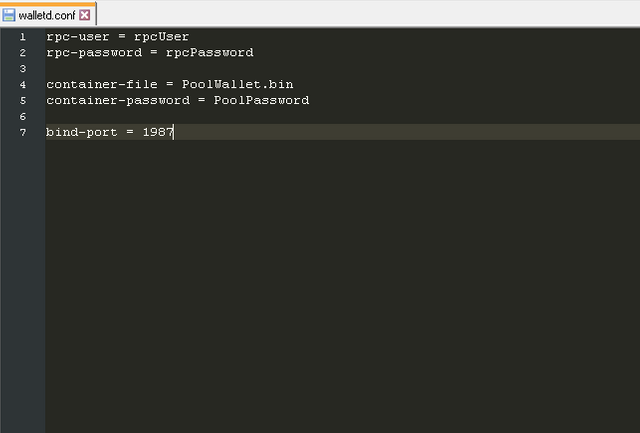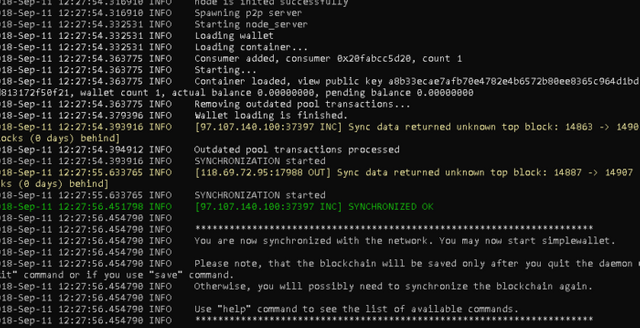Hey guys, I'm starting off our educational series with a brief tutorial on how you can get walletd up and running. Once you have walletd up and running you can start making your own services with BUKZ! The possibilities are endless! Games, Payment Gateways, Marketplaces, and the list goes on and on.
Generate your container file
I'm assuming that you have the binaries already. The first step to getting your walletd daemon up and running is to generate your container file. This file is password protected and holds your wallets addresses, balances, and transactions. Navigate to the directory you have walletd (walletd.exe if on windows) and run the following command.
./walletd --container-file PoolWallet.bin --container-password PoolPassword --generate-container
Now once you've run this command the wallet will spit out your public address and some other information and then exit itself out.

You now have a PoolWallet.bin file in your current working directory. Make sure you use a strong password and be sure to save it somewhere, preferably write it down on paper and keep it in a locked file cabinet inside a secret room behind a bookshelf.
Create a configuration file
The next step in getting your walletd service up and running is to create a configuration file. Open up your editor of choice and fill it with the following settings.
rpc-user = rpcUser
rpc-password = rpcPassword
container-file = PoolWallet.bin
container-password = PoolPassword
bind-port = 1987
When you're done it should look something like this:

rpc-user is the username you will use to authenticate with your daemon
rpc-password is the password used to authenticate with your daemon
cointainer-file is the container file we just created that holds your service wallet's information.
container-password is the password associated with the above container-file.
bind-port is the port our daemon will listen to accept RPC requests.
Once you've saved the file as "walletd.conf" or similar in the same directory as your walletd binary, we're ready to start the daemon!
Launching the daemon
We've been given two options when launching our daemon, we can launch it alongside our bukzd service, or we can launch it with the --local option and it will function as both.
If you want to run bukzd
./walletd --config walletd.conf
If you just want to launch the walletd service without bukzd:
./walletd --config walletd.conf --local

Now you're all setup and ready to start communicating with your walletd service! Make something cool!
Hello! Your post has been resteemed and upvoted by @ilovecoding because we love coding! Keep up good work! Consider upvoting this comment to support the @ilovecoding and increase your future rewards! ^_^ Steem On!

Reply !stop to disable the comment. Thanks!
Downvoting a post can decrease pending rewards and make it less visible. Common reasons:
Submit